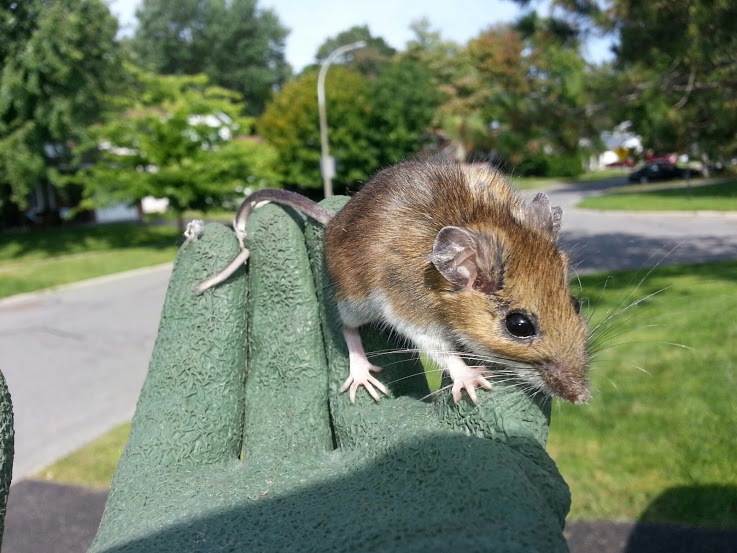During the colder winter months, mice have a tendency to make their way indoors. Like many rodents, they are an annoyance if they get inside. They can damage furniture, chew up clothing and eat food, but many people are worried about a more alarming possibility: Do mice bite people? While the reality is that mice rarely bite unless provoked, you still need to know how to protect yourself and your family. Below find more information about the risk factors associated with mice bites and how to avoid bites altogether.
Reasons Why Mice Bite
Two different types of mice are commonly found in homes: field mice and house mice. It’s important to know the difference between these two types, because they tend to act differently around people. Field mice typically have white feet and brown bodies. Their tails are short, but they are bigger than house mice, typically growing to be approximately 7 inches long. House mice have longer tails and come in many different colors, including black, grey and brown. They are smaller than field mice, typically growing to be about 5 inches long.
Field mice rarely bite people. More often than not, they avoid people and are fearful of coming into contact with humans.
Occasionally, field mice bite humans for very specific reasons:
- The mouse feels cornered and has no place to escape.
- The mouse feels threatened because you attempt to touch or move it.
- The mouse is sick or otherwise disoriented.
Like field-mice, house mice rarely bite humans. Since they are more used to being around humans, generally house mice are more scared of you than you are of them, and will make every effort to avoid coming into contact with you. House mice have been known to bite humans if they feel the need to defend themselves, but the likelihood of this is very rare.

Risk Factors of Bites
Although mice rarely attack humans, it’s important to know what to do if you do find yourself in that situation. The most serious risk factor associated with being bitten by a mouse is getting an infection. People with suppressed immune systems, like elderly people or those with underlying medical conditions, are at a greater risk of complications. If you are bitten by a mouse, the following symptoms may indicate you are developing an infection if:
- The pain increases over time.
- You develop a fever.
- The wound develops red streaks.
- The swelling around the wound worsens.
- You develop pain in your lymph nodes.
If you experience any of these symptoms after a mouse bite, seek medical attention. A doctor can help you properly clean the wound and may prescribe antibiotics to help ward off any infections.
How To Avoid Bites
The most effective way of avoiding mice bites is to ensure the rodents are not in your home to begin with. To avoid attracting mice, ensure all food is stored in secure containers and do not leave food or crumbs around the house. If you think these rodents are already present in your home, be sure to wash cookware thoroughly with detergent before use and wash your hands on a regular basis when preparing food. Wear shoes inside the house and avoid remote areas in your home, such as basements or attics, where you believe mice are residing. If you suspect that you have a mice infestation, the best thing to do is call a professional company to remove the wildlife right away. Mice breed at an alarming rate, and the longer you wait, the larger your infestation will be. Never attempt to remove mice on your own because of the potential risks.
Mice Control Milwaukee Services
At Skedaddle Humane Wildlife Control, we understand the anxieties that come with having a mice infestation. Call us today if you need rodent removal services. We focus on long-term solutions and always remove mice safely and affordably.



